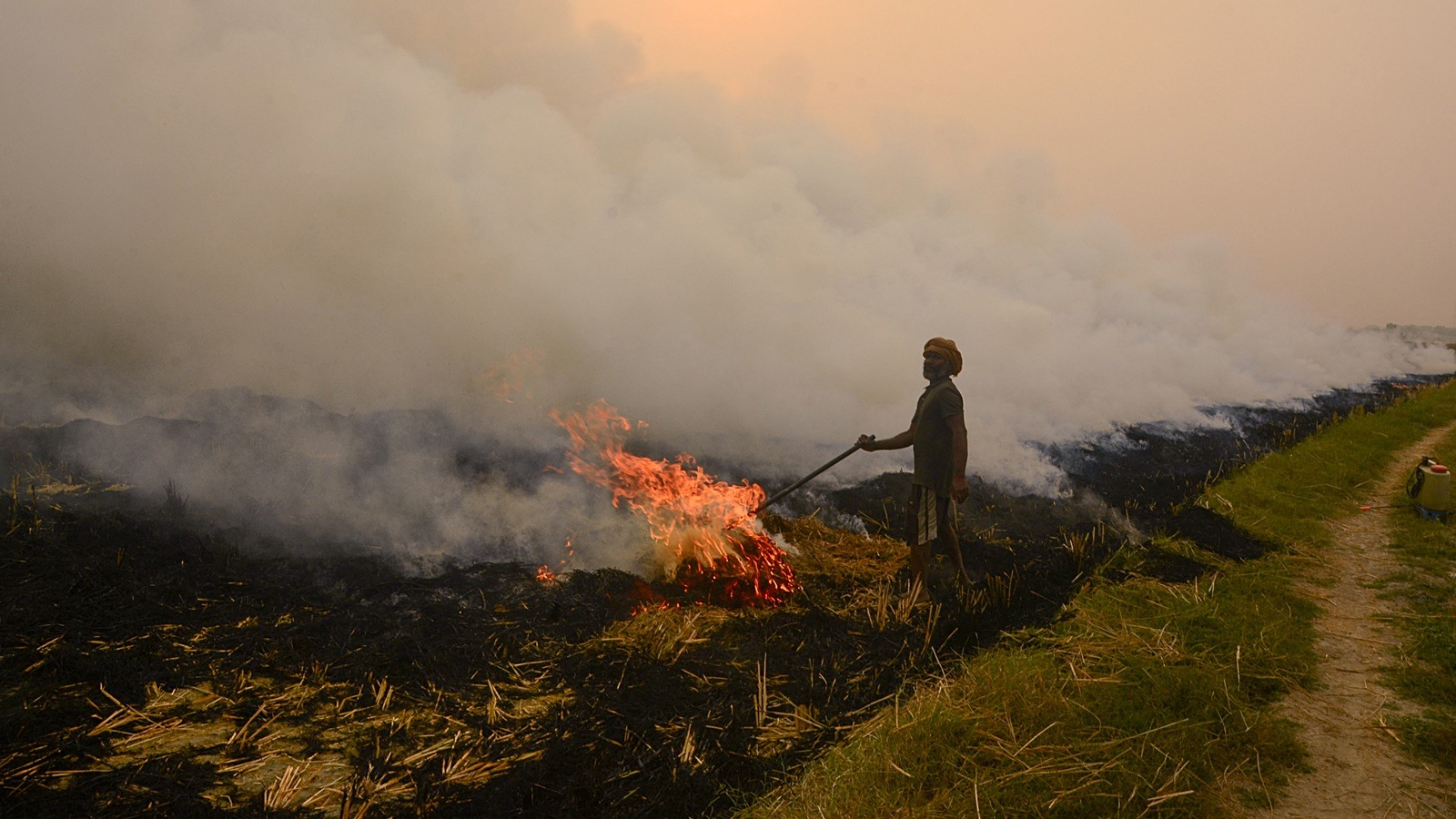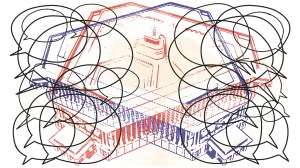Tackling stubble burning: SC asks Punjab govt why it can’t bear crop residue management expenses
The top court said the Centre and state should forget the politics over Minimum Support Price and work out plans to help farmers switch to crops other than paddy
 A two-judge bench of the Supreme Court was discussing the options to tackle stubble burning in Punjab, one of the major contributors to air pollution in the National Capital Region. (File Photo: PTI)
A two-judge bench of the Supreme Court was discussing the options to tackle stubble burning in Punjab, one of the major contributors to air pollution in the National Capital Region. (File Photo: PTI) The Supreme Court on Tuesday asked the Punjab government why it could not bear the manpower expenses and running costs of crop residue management machines so that it could be 100 percent free for marginal farmers. It said the Centre and state should forget the politics over Minimum Support Price (MSP) and work out plans to help farmers switch to crops other than paddy.
A two-judge bench presided by Justice S K Kaul was discussing the options to tackle stubble burning in Punjab, one of the major contributors to air pollution in the National Capital Region (NCR), when Senior Advocate Amicus Curiae Aparajitha Singh pointed out that while a subsidy is provided for purchasing the machines, there was no cost for hiring from custom hiring centres.
Punjab Advocate General Gurminder Singh pointed out that there was still the question of manpower and fuel to run it which the farmer would find expensive.
“What the Advocate General says is the machine requires fuel, manpower etc. The bottom line of the submission is the farmer doesn’t want to spend a penny. Then how will the byproduct come out? The farmer possibly is not interested or doesn’t want the economics of it. If that is the position, that is what I was suggesting…why don’t you fund this part of it also and use the byproduct and recover money,” Justice S K Kaul asked the AG.
The court also said in its order, “We put to the AG as to why the state cannot fund even this aspect and utilise the byproduct which would generate possibly funds atleast enough…to the extent that the subsidy has been given. We say so because there are farmers operating on different economic scales where they are able to gain even a profit out of this byproduct by using these machines.”
The AG said that this can also be considered by the Committee set up in pursuance of the court’s order under chairmanship of the cabinet secretary and added, “our contribution will be forthcoming”.
The bench also asked the Punjab government to “take a cue from the endeavours made by the state of Haryana in the manner in which financial incentives are given…” to stop stubble burning.
The Amicus said that “even on Sunday, there were 740 fires burning in Punjab. What are they doing? They come before you and say on affidavit that they are doing everything. But what are they doing on the ground?”
“That’s the problem. The only person who can answer is the farmer. He can tell you why he is doing it…Farmer is being made a villain…He is not a villain He must be having some reason for doing so… These questions are very pertinent. Why is he doing it? Nobody has an answer for it… State is not being able to give us an answer for it also,” Justice Dhulia said.
Justice Kaul said that “to my thinking process, the bottom line is money”.
The bench reiterated its warning that if the paddy cultivation continues, it may dangerously deplete the water table in the state and leave it dry and called for measures to sensitise farmers about this.
“It may be working well now because it’s between crops. But if land runs dry, everything else also gets affected. The farmers must be made to understand the consequences,” said Justie Kaul.
The amicus said that in 2019, farmers had said that they don’t want to grow paddy and that they were growing it only because of MSP.
The court said that is why it had flagged the issue of MSP earlier. “The concerned authorities may consider whether to discourage growing paddy. They can have a scenario of some MSP…Please explore whether you would take steps to discourage growing paddy and encourage growing an alternative crop.”
The court said that “in our belief, the committee must look into the aspect of discouraging cultivation of rice, specially on account of the water requirement for it in the wells. The long-term impact would be disastrous. Persons concerned must put their head together to see how to encourage switching over to alternative crops”.
Justice Kaul remarked that ‘the MSP aspect is complex because you don’t want to displease some groups of people…But if you want me to be blunt, the state and union must forget the politics of it and apply their mind to see how to stop it. I didn’t want to say it in court or the order, but that’s the bottom line”.
The court also said that all stakeholders will have to implement the resolutions adopted by the Committee headed by the Cabinet Secretary.
“All data has been developed over a period of time, the problem is known, theory is done. Practise, again it is not done. People are not concerned with how you do it. And the court’s job is not to get into nitty gritty, Court’s job is to make you do your job which is to stop this pollution, How you stop this is your business…Every stakeholder is before this committee. And the resolutions passed there, everyone must implement it. If you don’t implement it, our job is to take you to task”.







